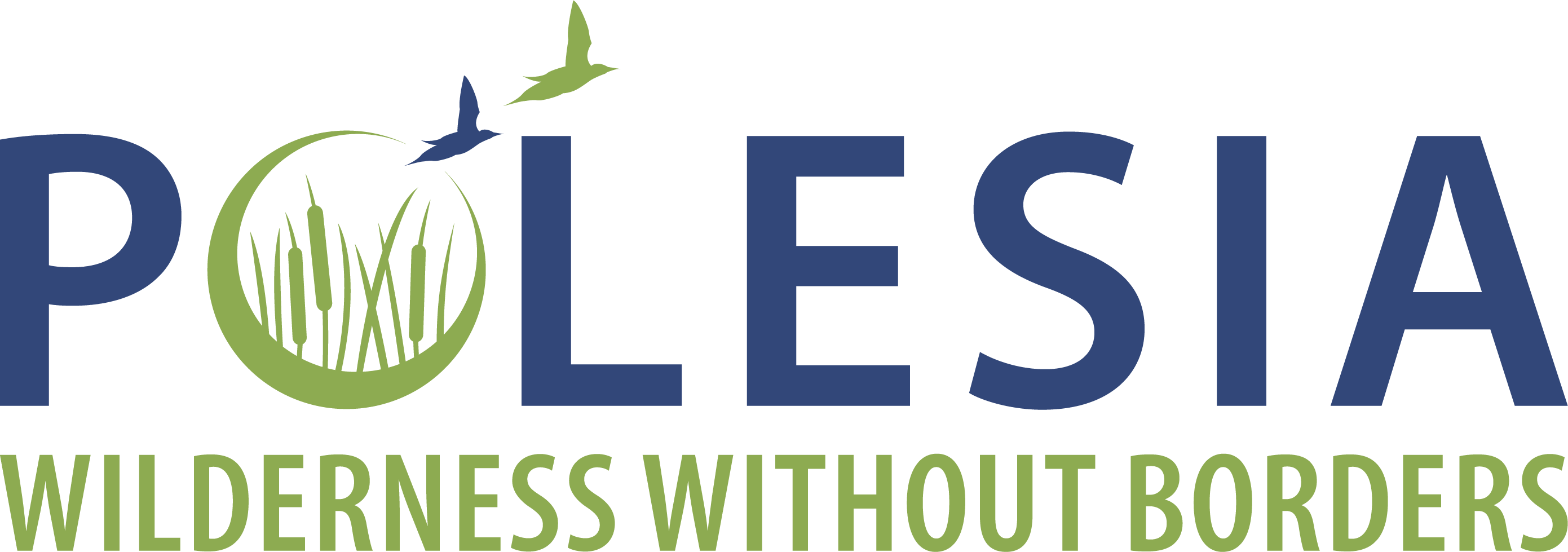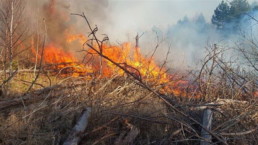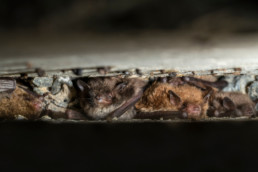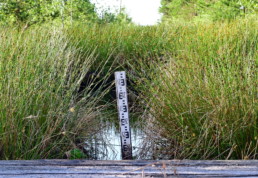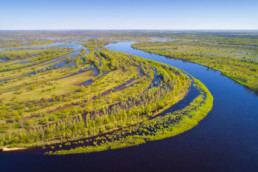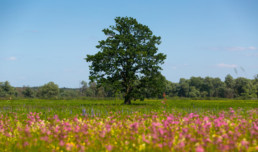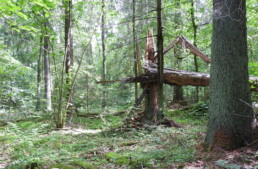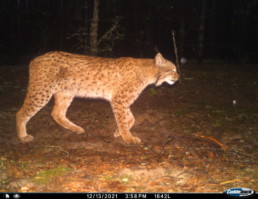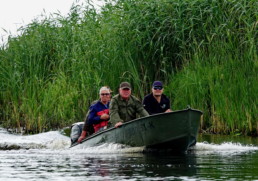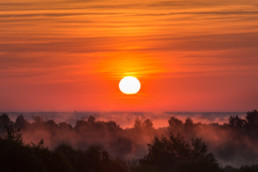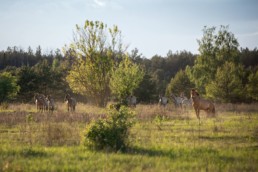Guardians of Polesia
by Zanne Labuschagne
In Belarus and Ukraine local communities from Polesia are coming together to volunteer for the protection of the incredible wilderness they call home.
Local ‘volunteer caretakers’ are donating their time to protect Polesia’s reserves and key wildlife areas. The ‘Polesia – Wilderness without borders’ project, with support from the Endangered Landscapes Programme, now works with 12 volunteer caretaker teams from Ukraine and 47 volunteer caretakers from three groups in Belarus. The initiative is relatively new and as such the project continues to learn the best approach in each country and adapts accordingly. APB-Birdlife in Belarus and the Ukrainian Society for the Protection of Birds (USPB) in Ukraine are helping to guide this strategy at a national level.
Meet Anastasia
Project partner APB-Birdlife Belarus now has 47 registered volunteer caretakers in Polesia. Organised into three groups, they primarily work in the Important Bird Areas (IBAs) of Almany Mires, Mid-Pripyat and Turov Meadows. In 2020, working hand-in-hand with the caretakers, the project team organised eight workshops and community meetings to promote nature conservation and take action.
Anastasia Blotskaya, who co-ordinates the activities of one of the three APB volunteer caretaker groups, held over 150 environmental education lessons in local schools in 2020. A physical education teacher by training, Anastasia developed an extra-curricular course for local schoolchildren called ‘ABC of Ornithology’, teaching them about birds, endangered species and the importance of nature. The course is now scheduled once a week with three groups from two primary schools in the area.
Turov has been home for Anastasia and her family for the past ten years – even in that short time she has seen many changes. Anastasia is particularly concerned about lower rainfall in recent years and the resulting drop in water levels in Polesia’s rivers and wetlands. Even her young son has noticed that snowfall has become less and less each winter. Touched by the magic of Polesia, she is now working to encourage its protection within her community;
“I would very much like people to understand that material things are not as important as what nature gives us – when you breathe clean air, hear the singing of birds, the murmur of water – that’s what is valuable”.
Over-harvesting of wild berries
During the warmer months the mires and forests of Polesia become carpeted with bilberry and cranberry bushes laden with fruit. The rich abundance of berries provides important food for wildlife, but also attracts large groups of berry pickers each season. Wild berries are an important source of income for local people who pick and sell them in the summer months, but when done at scale and in the wrong places this activity becomes problematic.
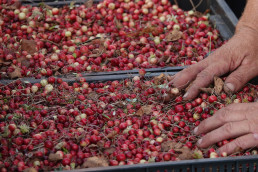
One area of concern is the Almany Mires Nature Reserve in Belarus – one of Europe’s largest natural mires covering 100,000 hectares. Many species breed in the area, including the globally threatened Greater Spotted Eagle. Almany is heavily impacted by over-harvesting of berries. Pickers build illegal roads to ease access to the area, allowing for more amenities to be brought to their temporary camps. After the harvest, the land is left trampled and scattered with large quantities of litter. The breeding eagles are particularly sensitive to human disturbance and the presence of berry pickers can result in adults moving elsewhere and abandoning their chicks.
The volunteer caretakers are playing a crucial role in tackling this threat to Polesia. This year, two expeditions were organised taking volunteers into the field where they identified illegal camps and cleaned up the litter left behind. Additionally, a training on using mapping tools, including a Geographic Information System (GIS), was held to allow the teams to build up a database of camp locations and the results of field work. With the help of regional coordinators, field experts, forestry employees and the caretakers, 60 illegal berry picker camps were identified and mapped in Almany Mires and Stary Zhaden Nature Reserves this year. A map containing the illegal camps is being constantly updated and transferred to the relevant state authorities.
Meadows are overgrown
The volunteers also clear overgrown meadows near Turov in Belarus. According to ornithologist Pavel Pinchuk, who has been monitoring birds from the Turov Ringing Station for over 20 years, wader numbers across Europe are showing worrying declines. One reason for this is the lack of breeding habitat for these species. Meadows along watercourses that the birds historically used as display sites or leks, and for nesting, have become overgrown and are turning to scrub and forest due to less frequent flooding. The overgrown vegetation and lower water levels also place crucial habitat at risk for wild fires. By clearing thick vegetation from the meadows and restoring the grassland that the waterfowl require to breed, the volunteers hope to reverse this trend in Polesia.
860 kms by bicycle in Ukraine
In Ukraine, a total of 12 volunteer caretaker groups have been established, working with local partner Ukrainian Society for the Protection of Birds (USPB). Eleven of these are made up of high school students and one is a group from Zhytomyr University. These environmental enthusiasts regularly come together to monitor and protect biodiversity in the unique wilderness they call home. Although the COVID-19 pandemic hindered activities, and fewer than hoped were possible, important progress was still made in Ukraine this year.
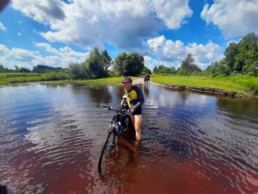
During an 860-kilometre field trip, carried out on bicycles, eleven of the volunteer caretaker groups in Ukraine were visited. The two-week bike tour across the project area took place in July and included Wild Polesia community engagement officer, Dr Serhiy Panchenko, and a support team. During the tour the team assessed the potential for tourist bike trails in the area. Nature reserves and wildlife areas being overseen by the volunteer caretakers were also visited and inspected, and the team developed a new volunteer work plan, taking the management of many activities online due to the pandemic.
For the past six months the volunteers have also been identifying and developing ‘eco-trails’ to share the area’s natural and cultural heritage with visiting tourists. One 29-kilometre trail has already been identified in the Rivne region, while the team aims to finalise several others in the Ukrainian part of Polesia by mid-July 2021. Volunteers and young people from the local community will then be trained to guide visitors along the trails.
Across the globe young people are mobilising to fight for the protection of the planet they will inherit, theirs are some of the loudest voices advocating for climate action. The volunteer caretakers in Polesia have shown that they care for the future of their home and are willing to invest their time and effort in ensuring this important wilderness is protected.
Zanne Labuschagne is a communications coordinator at FZS.
The project “Polesia – Wilderness Without Borders” is part of the Endangered Landscapes Programme and is funded by Arcadia. The project is coordinated by Frankfurt Zoological Society (FZS).
This post is also available in UKR.
